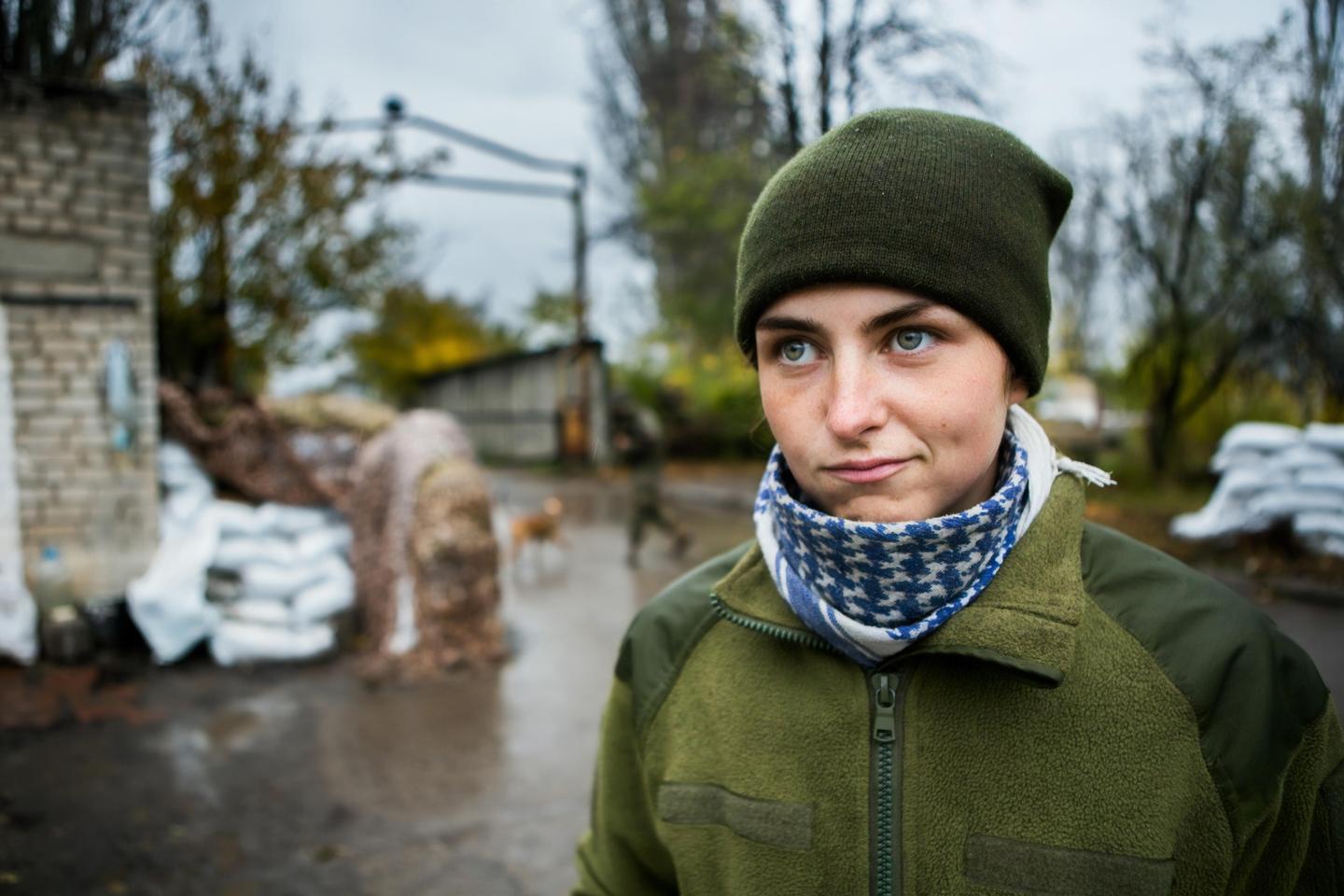


January 2024, village of Zakyne, Donbas front, Ukraine. "Last night I ordered my front squad to abandon their dugout. They had been under fire for twenty-four hours and they couldn't even launch a drone to see where they were being shelled from, so there was no point keeping them there." The lieutenant knows what she's doing. She has experience, already several years on the front line. She commands a 25-strong aerial reconnaissance section equipped with drones – "our birds," "our babies."
The 28-year-old is Yulia Mykytenko. She confided her current life to French-American journalist Lara Marlowe. From this lengthy account, the star columnist for Dublin's Irish Times has produced a key book for understanding the war in Ukraine: How Good It Is I Have No Fear of Dying (2024). Page after page, this is a story of bravery, a war diary, the portrait of a big-hearted patriot, a moral lesson, a piece of Ukrainian political history. In short, and masterfully told, the answer to the simple question: Why are Ukrainians dying?
There's trench warfare. Yulia's platoon patrols 50 kilometers of a 1,200-kilometer front. More than a century after the First World War, life in the trenches has hardly changed: the cold, the mud, the lack of sleep, the rats that swarm and feed on the corpses – Russian and Ukrainian. Together, the body armor and helmet weigh over 10 kilos. "Each drone can detect enemy movement within a radius of 10 to 15 kilometers," says Lieutenant Mykytenko. "We observe the front line in real time, act as spotters for Ukrainian artillery and watch Russian assault units for signs of an imminent attack on our trenches. Rescuing dead and wounded is a big part of my job. [We] must find the right moment to go and fetch them."
Escaping the Russian boot
On leave at the end of October, Yulia came to Paris to present her book. Wearing military attire and with a streak of blue hair, she recounted her war without boasting. She paused, her words whispered, barely audible, as she recalled those she lost. Her husband, Illia, was killed in action, as were some 20 close friends. She has seen all the savagery of the so-called "high-intensity" war. She was born in 1995, four years after Ukrainian independence to a poor family in the Kyiv region: They spoke Russian and read Pushkin and Lermontov at home, but had Ukrainian patriotism in their hearts.
Elegant and precise, the writing of Marlowe, a reporter familiar with Middle Eastern wars, masterfully conveys a story that, through the history of Yulia's family, tells the whole Ukrainian tragedy. How to escape the Russian boot and link with Europe in the face of Vladimir Putin, who has no qualms about killing tens of thousands of young people and maiming hundreds of thousands more to satisfy his craze for imperial grandeur?
You have 42.99% of this article left to read. The rest is for subscribers only.
